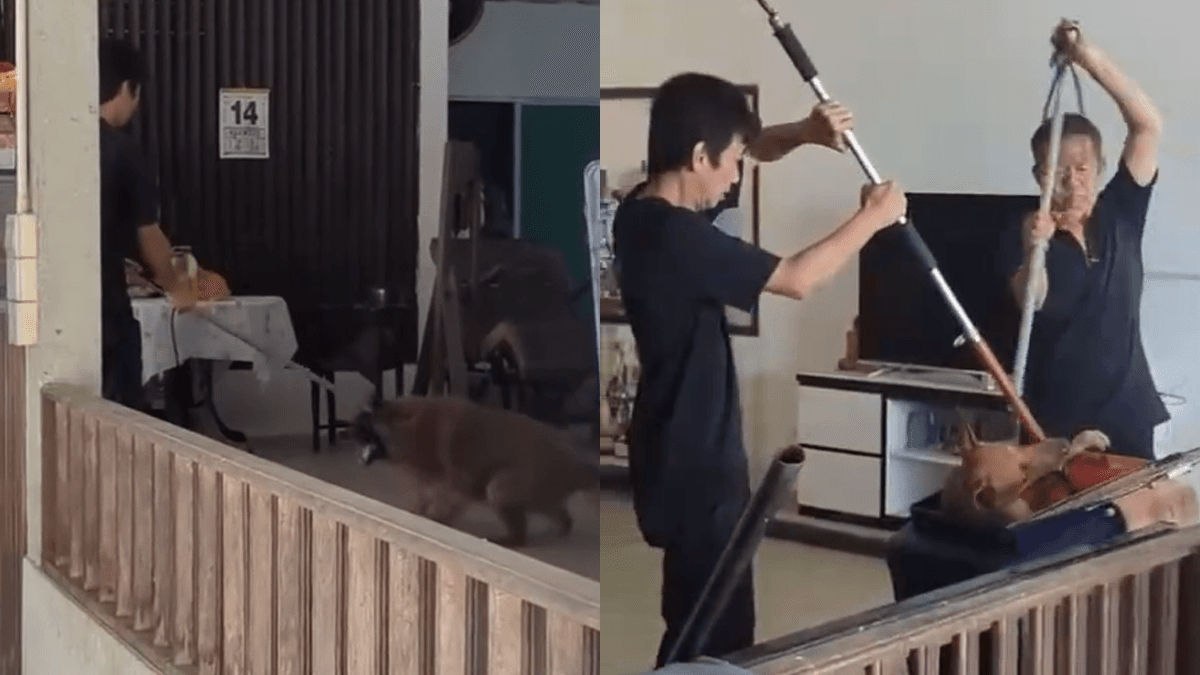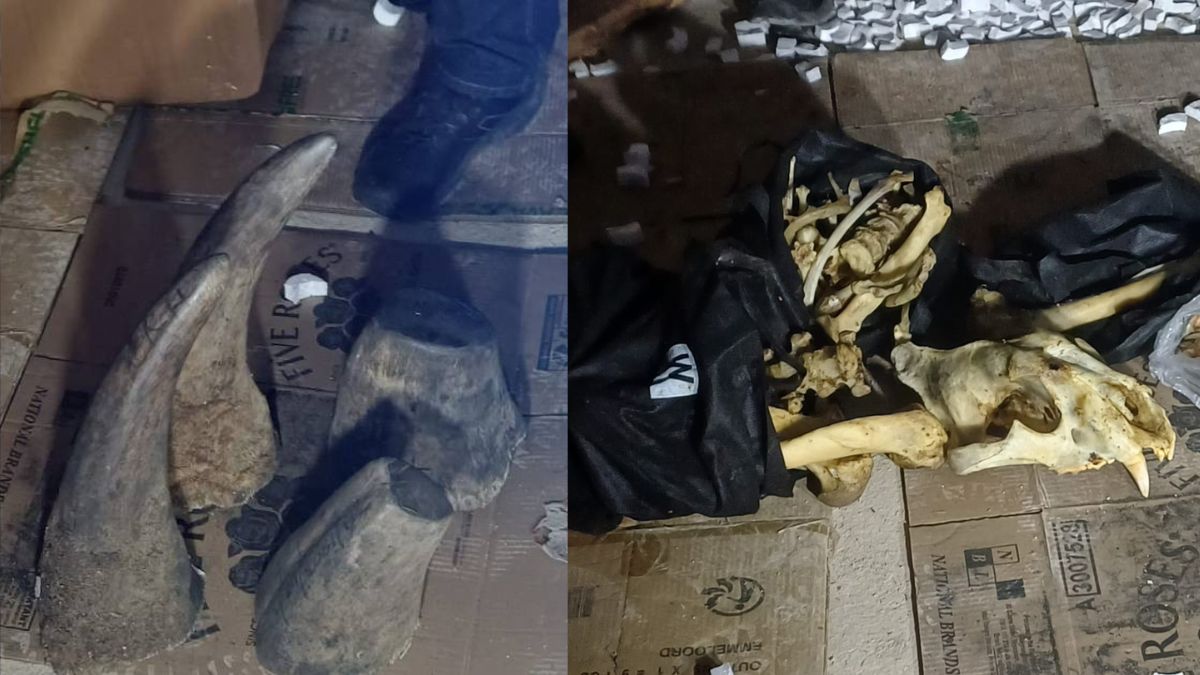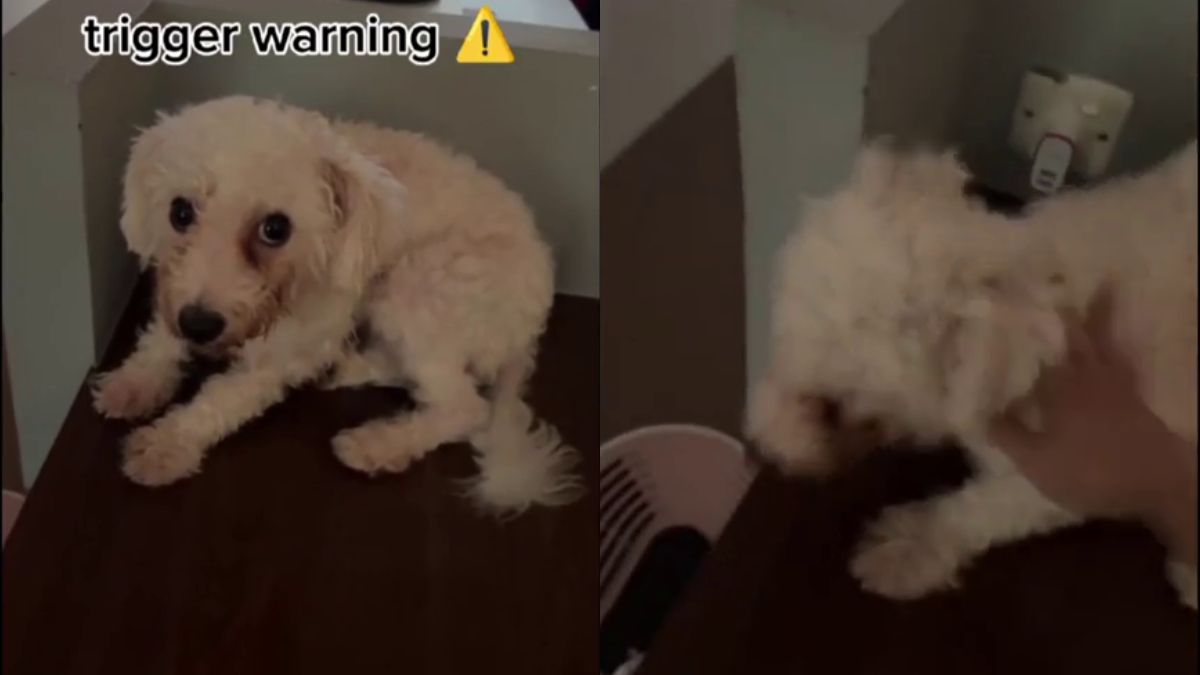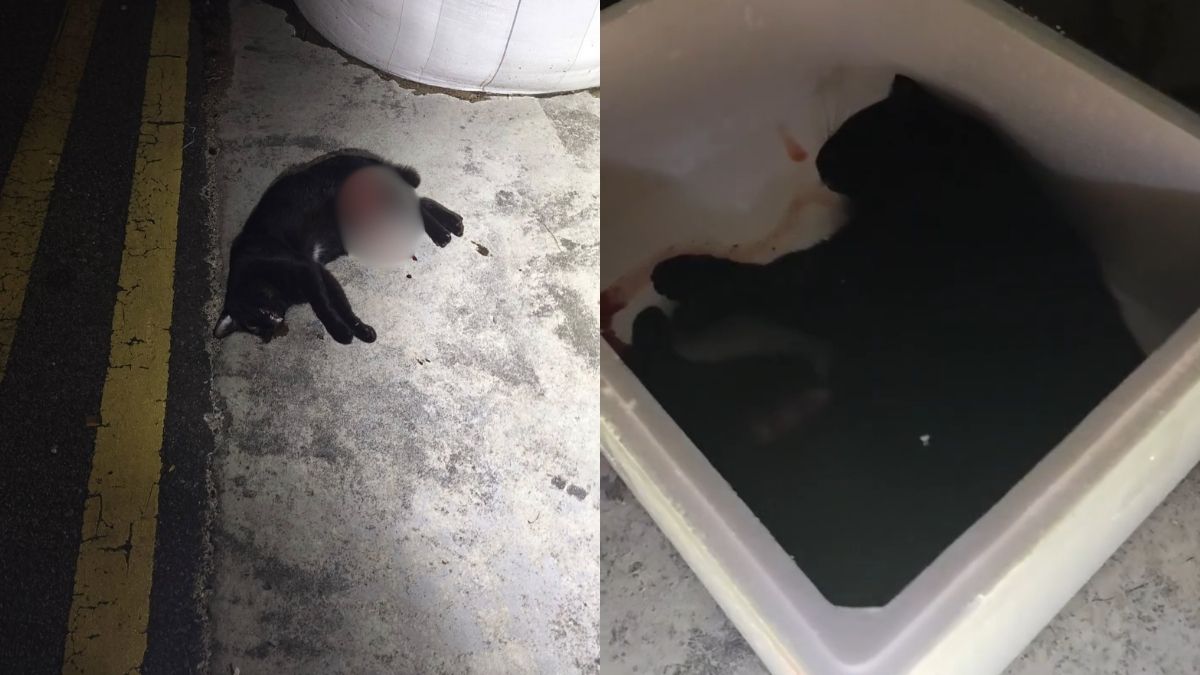NParks responds after backlash over trapping of stray dogs at Seletar farm
After videos surfaced showing a senior dog collapsing during a capture operation at Seletar, NParks clarified that the dogs were removed for public safety after multiple bite incidents. Feeders and netizens have questioned the handling and transparency of the operation.

- NParks confirmed the capture of three stray dogs at Seletar after four bite incidents between May and November 2025.
- Public backlash erupted after video showed one dog collapsing in a crate; feeders said they were not consulted.
- Animal welfare groups have urged NParks to adopt more humane and collaborative approaches to stray dog management.
Videos showing stray dogs being forcefully trapped at Seletar West Farmway on 14 November 2025 have sparked public outrage and scrutiny of the National Parks Board's (NParks) handling of the situation.
One widely shared clip on Instagram showed a brown dog struggling as men used poles to push it into a crate. Later, the dog was seen collapsing, allegedly due to shock. The dog was said to be about 10 years old and walked with a limp.
Animal lovers, including the individual who posted the video, questioned the necessity of such forceful methods, especially as the dogs were known to be timid. Their footage was reposted by animal advocacy platforms including Wake Up Singapore and Rescue With Love SG.
NParks: Operation followed reports of four bite incidents
In response to public queries, the Animal & Veterinary Service (AVS), a unit of NParks, confirmed that the dogs were removed for public safety reasons following a series of bite incidents.
According to MustShareNews, Dr Anna Wong, AVS’s Group Director of Community Animal Management, said that four bite cases had been reported between May and November 2025. These involved injuries such as scratches and puncture wounds that required medical attention.
She noted that the dogs were free-roaming and not owned by the farm, which had requested their removal. AVS subsequently engaged an animal management contractor to carry out the operation, which was conducted under the supervision of AVS staff.
Dr Wong explained that the use of restraining poles was considered necessary due to the dogs’ reported aggression and the associated public safety risks. She added that the methods used complied with international animal welfare standards.
The force applied during the operation was assessed to be within acceptable parameters, with no use of uncovered wire loops or harmful equipment, and all tools used were in line with humane handling practices.
Feeders dispute need for capture and lack of consultation
However, regular feeders who have cared for the community dogs over several years have voiced strong objections to how the situation was handled.
In comments shared with The Online Citizen, a feeder who has cared for the dogs for seven years, said the trappers told the feeders that they were sent to trap “brown dogs” after a public complaint that one had chased and bitten someone. However, she was not shown any evidence of the incident and said no NParks officers approached her for input prior to the operation.
The feeder described the dogs as skittish and not aggressive, adding that she has frequently dealt with dog-hating individuals in the area.
According to her, an animal welfare group helped facilitate contact with NParks, but the response was delayed due to it being the weekend. “They said they would only follow up the next week,” she told TOC.
She expressed concern for the senior dog seen collapsing in the video, saying it appeared to have been overwhelmed by the stress of the situation.
Witnesses call for greater care and accountability
Raine Toh, 20, who had interacted with the dogs near the nursery, told Stomp that she found the operation troubling. She described the dogs as shy and non-aggressive, saying she had petted some over time.
“There are many other ways to trap a dog. Bloodshed is not necessary,” she said. Toh also questioned how NParks could be sure the captured dogs were responsible for the bite incidents and whether consultation with caregivers occurred beforehand.
“If the dogs were really dangerous, wouldn’t the caregivers be the first to raise concerns?” she asked.
Toh emphasised that while she understood the need for public safety, the situation should have been approached with more care and transparency.
Three dogs under AVS care, more operations possible
According to TOC, feeders confirmed that three dogs were taken during the operation, while others fled. They were also informed by the trappers that efforts to remove the remaining dogs would resume the following week.
Dr Wong said the three dogs captured are now being cared for by AVS and are under observation to assess their suitability for rehoming through the Trap-Neuter-Rehome/Release-Manage (TNRM) programme.
She advised the public to avoid direct eye contact with stray dogs, and not to make sudden movements or loud noises that might provoke defensive behaviour.
The agency reiterated that all procedures were conducted under AVS supervision with adherence to international welfare guidelines.
Animal advocacy groups and community feeders have called for NParks and AVS to improve engagement with local caregivers before undertaking similar operations.
Chained Dog Awareness in Singapore calls for protocol reform
Animal advocacy group Chained Dog Awareness in Singapore (CDAS) also weighed in.
In a Facebook post on 16 November, CDAS said the images circulating online had caused “widespread public distress” and described the dogs' visible panic, with blood and faeces in the area indicating extreme fear.
“These images are heartbreaking and raise serious questions about the methods and mindset behind such operations,” the group said. “Must animal control come at the cost of such visible suffering?”
CDAS urged NParks to reform current trapping protocols and consider alternatives such as:
-
Engaging caregivers who can calmly guide the dogs;
-
Using mild sedatives under veterinary supervision to reduce anxiety;
-
Ensuring accurate identification of dogs involved in incidents rather than conducting blanket removals.
They noted that even if the current method is legally approved, it “does not make it acceptable,” pointing out that multiple countries—including the United Kingdom, European Union members, New Zealand, and several U.S. states—have formally recognised animals as sentient beings.
“Whatever the justification, the outcome is undeniable — the dogs suffered. And this suffering could have been prevented,” CDAS said, urging NParks to lead by example and ensure Singapore’s animal welfare standards reflect compassion and responsibility.
Animal welfare organisation Causes for Animals (Singapore) also expressed deep concern over the handling of the dogs. In a social media post, the group said AVS’s statement that the force used was “within reasonable parameters” undermined Singapore’s progress towards humane trapping standards.
They highlighted that 95% of the dogs in the area had already been sterilised by just two volunteers using calm and non-violent methods. The group questioned whether any proper identification was made of the dog involved in the alleged biting incidents, noting that one of the dogs seen in the footage rarely strayed from the nursery area.
The group also raised concerns about a double standard in training and accountability. While shelter-based TNRM volunteers are required to undergo humane handling training, the trappers in this case appeared to use rough methods including choking, dragging, and misuse of tools. They asked whether such contractors are held to the same standards.
“These practices are not humane,” the group stated, warning that rough handling could result in long-term behavioural issues and hinder rehoming efforts.
"We owe our street dogs better. We owe our community better. And we deserve a system that doesn’t undo the work of Animal Welfare Groups by traumatising animals that feeders have spent years caring for."











